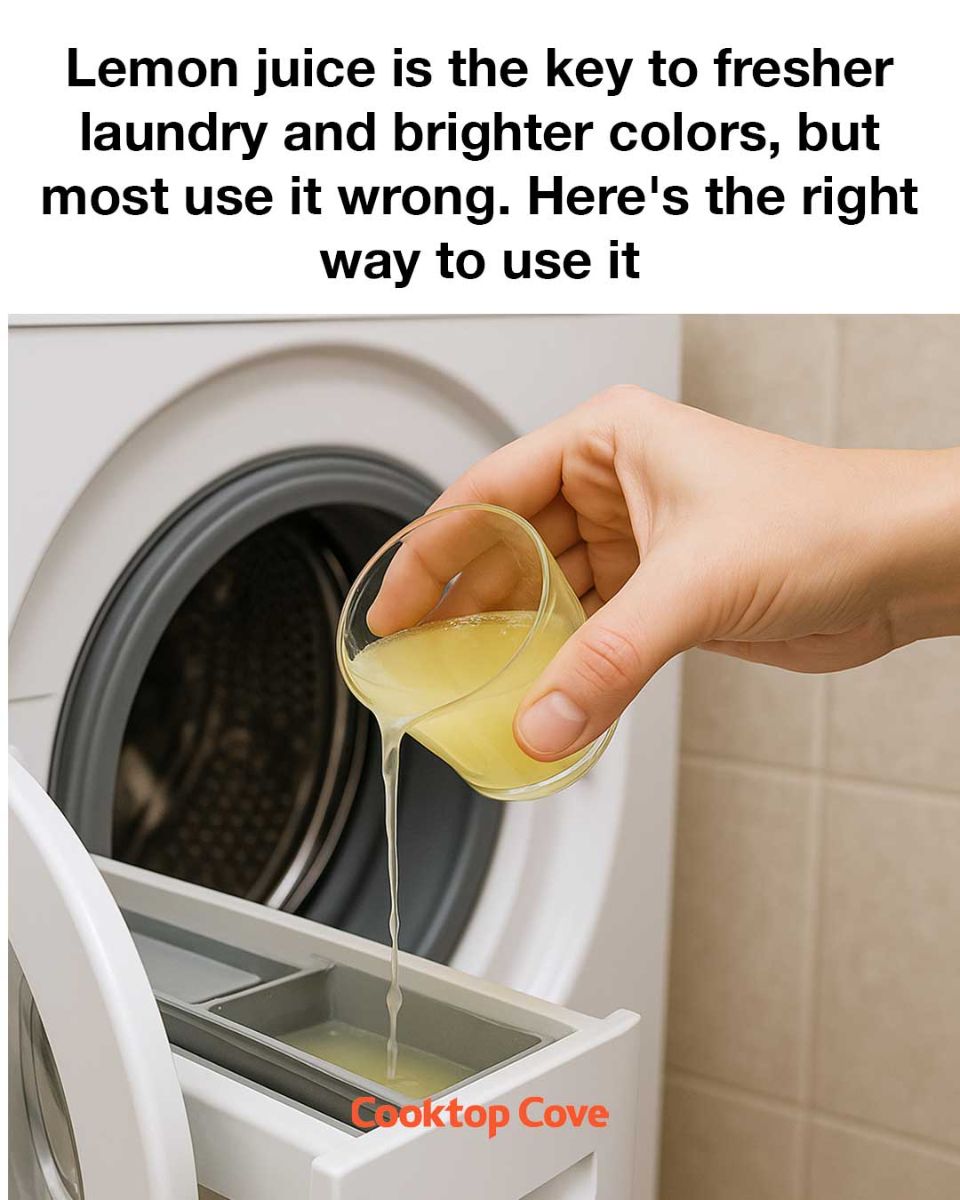6. Benefits of Using Lemon Juice Over Commercial Products
Lemon juice is a natural, non-toxic alternative to commercial laundry products, which often contain harsh chemicals that can irritate the skin and harm the environment. By using lemon juice, you reduce your exposure to these chemicals and contribute to a healthier home environment.
Moreover, lemon juice is biodegradable and safe for septic systems, making it an environmentally friendly choice. It’s also cost-effective, as it can be used for multiple purposes around the home, reducing the need for multiple cleaning products.
7. Viral Hacks: What Works and What Doesn’t
Many viral hacks suggest using lemon juice for everything from whitening whites to removing rust stains. While lemon juice is effective for brightening and deodorizing, it is not a miracle solution. For example, it may not completely remove set-in stains or replace the need for a good detergent.
Some hacks suggest using lemon juice in combination with baking soda for a powerful cleaning effect. While this can work for surface cleaning, in laundry, the combination can neutralize the acidity of lemon juice, reducing its effectiveness. Always test any new hack on a small, inconspicuous area first.
8. How Much Lemon Juice Should You Use?
The recommended amount of lemon juice for a standard load of laundry is about half a cup. This provides enough citric acid to brighten and deodorize without overwhelming the fabric. For smaller loads, you can reduce the amount to a quarter cup.
It’s important to adjust the amount based on the size of the load and the level of soiling. Using too much lemon juice can lead to fabric damage, while too little may not provide the desired effects. Always err on the side of caution and start with a smaller amount if unsure.
9. Precautions When Using Lemon Juice on Different Fabrics
While lemon juice is generally safe for most fabrics, it can cause damage to delicate materials such as silk or wool. The acidity can weaken fibers and cause discoloration. Always test on a small, hidden area first if you’re unsure.
For colored fabrics, ensure that the lemon juice is well-diluted and rinsed out thoroughly to prevent fading. Avoid using lemon juice on dry-clean-only items, as the acidity can interact with the chemicals used in dry cleaning, potentially causing damage.
10. Environmental Benefits of Using Lemon Juice
Lemon juice is a renewable resource and biodegradable, making it an environmentally friendly choice for laundry. Unlike many commercial products, it does not contain phosphates or synthetic fragrances that can pollute waterways.
By choosing lemon juice, you reduce your carbon footprint and contribute to a more sustainable lifestyle. It’s a simple switch that can have a significant impact on reducing household waste and chemical exposure.
11. Frequently Asked Questions About Lemon Juice in Laundry
Q: Can I use lemon juice in cold water washes?
A: Yes, lemon juice can be used in cold water washes. The citric acid remains effective at breaking down residues and brightening colors.
Q: Will lemon juice bleach my clothes?
A: Lemon juice has mild bleaching properties, but when used correctly, it should not bleach colors. Always dilute and rinse thoroughly.
Q: Can I use lemon juice with my regular detergent?
A: Yes, lemon juice can be used in conjunction with your regular detergent to enhance cleaning and deodorizing effects.

